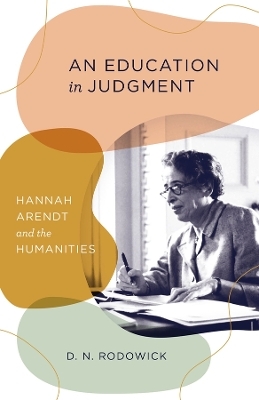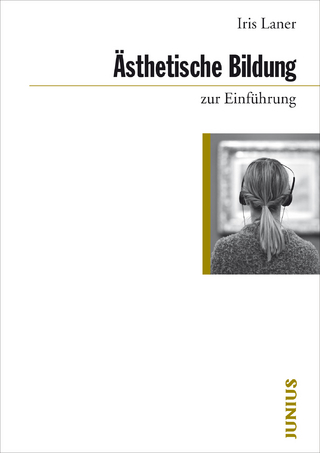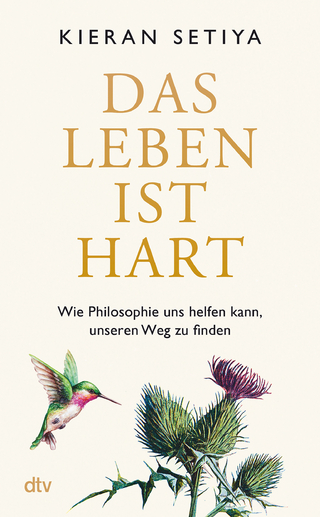
An Education in Judgment
Hannah Arendt and the Humanities
Seiten
2023
University of Chicago Press (Verlag)
978-0-226-82950-0 (ISBN)
University of Chicago Press (Verlag)
978-0-226-82950-0 (ISBN)
Rodowick takes after the theories of Hannah Arendt and argues that thinking is an art we practice with and for each other in our communities.
In An Education in Judgment, philosopher D. N. Rodowick makes the definitive case for a philosophical humanistic education aimed at the cultivation of a life guided by both self-reflection and interpersonal exchange. Such a life is an education in judgment, the moral capacity to draw conclusions alone and with others, and letting one’s own judgments be answerable to the potentially contrasting judgments of others. Thinking, for Rodowick, is an art we practice with and learn from each other on a daily basis.
In taking this approach, Rodowick follows the lead of Hannah Arendt, who made judgment the cornerstone of her conception of community. What is important for Rodowick, as for Arendt, is the cultivation of “free relations,” in which we allow our judgments to be affected and transformed by those of others, creating “an ever-widening fabric of intersubjective moral consideration.” That is a fragile fabric, certainly, but one that Rodowick argues is worth pursuing, caring for, and preserving. This original work thinks with and beyond Arendt about the importance of the humanities and what “the humanities” amounts to beyond the walls of the university.
In An Education in Judgment, philosopher D. N. Rodowick makes the definitive case for a philosophical humanistic education aimed at the cultivation of a life guided by both self-reflection and interpersonal exchange. Such a life is an education in judgment, the moral capacity to draw conclusions alone and with others, and letting one’s own judgments be answerable to the potentially contrasting judgments of others. Thinking, for Rodowick, is an art we practice with and learn from each other on a daily basis.
In taking this approach, Rodowick follows the lead of Hannah Arendt, who made judgment the cornerstone of her conception of community. What is important for Rodowick, as for Arendt, is the cultivation of “free relations,” in which we allow our judgments to be affected and transformed by those of others, creating “an ever-widening fabric of intersubjective moral consideration.” That is a fragile fabric, certainly, but one that Rodowick argues is worth pursuing, caring for, and preserving. This original work thinks with and beyond Arendt about the importance of the humanities and what “the humanities” amounts to beyond the walls of the university.
D. N. Rodowick is the Glen A. Lloyd Distinguished Service Professor in the College and the Division of Humanities at the University of Chicago. Among his books are Philosophy’s Artful Conversation, Elegy for Theory, and What Philosophy Wants from Images, also published by the University of Chicago Press.
Preface
I The Art of Thinking
II Judgment and Culture
III Culture and Curation
IV The World-Observer
V Politics and Philosophy, or Restoring a Common World
VI An as Yet Undetermined Animal
Acknowledgments
Index
| Erscheinungsdatum | 07.07.2023 |
|---|---|
| Sprache | englisch |
| Maße | 140 x 216 mm |
| Gewicht | 172 g |
| Themenwelt | Geisteswissenschaften ► Philosophie |
| ISBN-10 | 0-226-82950-2 / 0226829502 |
| ISBN-13 | 978-0-226-82950-0 / 9780226829500 |
| Zustand | Neuware |
| Haben Sie eine Frage zum Produkt? |
Mehr entdecken
aus dem Bereich
aus dem Bereich
wie Philosophie uns helfen kann, unseren Weg zu finden
Buch | Hardcover (2023)
dtv Verlagsgesellschaft
26,00 €
wie Hoffnung politisch wird
Buch | Softcover (2023)
Philipp Reclam (Verlag)
7,00 €


